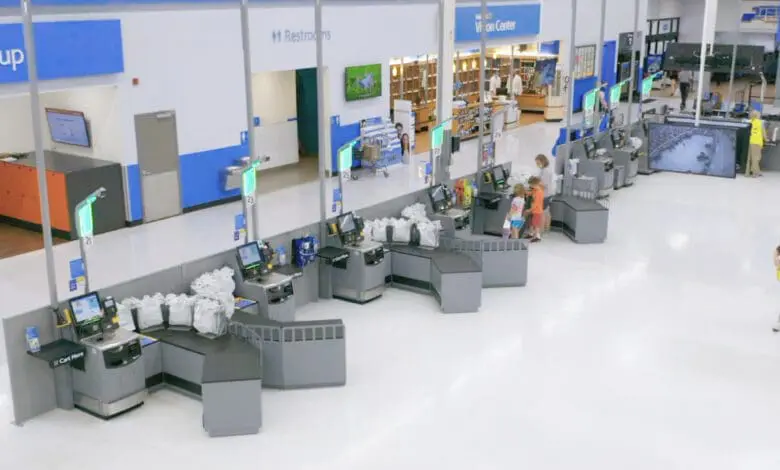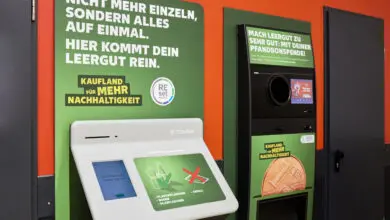
Although the NCR self-checkouts are pretty much the same that you always find at Walmart stores in the US, the world’s largest retailer’s experiment in its Supercenter in Fayetteville, Arkansas, could change the way the world of retail organises checkouts going forward.
Traditional manned checkout lanes are gone. But not the staff. Shoppers who prefer to get their shopping scanned and bagged, get the service. But at NCR’s self-checkout tills. The advantage is obvious: Shoppers can choose the level of service or support they want or need. From doing everything themselves to full service, also gradual assistant is provided.
All checkouts are open
All 34 tills are open all the time, at least as long as they don’t need technical support. All shoppers enter the checkout area through the same entry and are greeted – and supported, as much as they want it.
What Walmart developed together with NCR seems to be the logical next step after self-checkout-only stores as those of Tesco’s Fresh&Easy failed completely – not only in the US. Some shoppers need or want to be assisted at the checkout, and retailers need to take that into account.
The new checkout area in the Fayetteville Supercenter is very wide and open which makes it look much more modern but also suits those shoppers who prefer distance to others because of fears of infections.
Cashiers become hosts
Walmart didn’t cut any employments because of the new model but transitioned all cashiers in the store to a new type of job called ‘Host.’ It’s the Host’s job to make sure the checkout experiences are exactly what customers want them to be. If a customer wants to check themselves out, a host is there to show them to an open register. If a customer wants to be checked out by an associate, a host rings them up and bags all of their items just like they would have in the old lane-driven layout.
“By nature, individual lanes make the checkout experience transactional, but being face-to-face, the interaction becomes a relationship. We want to make it a personal experience”, said John Crecelius, Senior Vice President Innovations Development of Walmart US. He explains that getting the Hosts out from behind the register has changed the whole mindset of his frontend associates. Now, instead of focusing on the speed of each transaction, the employees are focusing on the individual needs of each customer.
No more queuing at the lamest checkout
One of the most common complaints with the traditional checkout experience is that there aren’t enough lanes open. There are a couple of reasons for this. The first is visibility. It’s hard to see which lanes are open, because of the physical walls between them.
To save time, many customers search for the shortest line or the line that seems to be moving the fastest. This creates a never-ending grass-is-always-greener scenario where the customer spends time calculating which line will take the least amount of time.
Traditional manned lanes are also slow to adapt to sudden changes in customer flow. If the store suddenly gets busier, getting another cashier isn’t always easy. In the new layout is no such thing as opening or closing a lane, so adapting to changing traffic patterns is much easier.
According to Walmart, running a register in the lane takes 40 hours of cashier training to operate a register. With the new layout, the training took less than a day.




